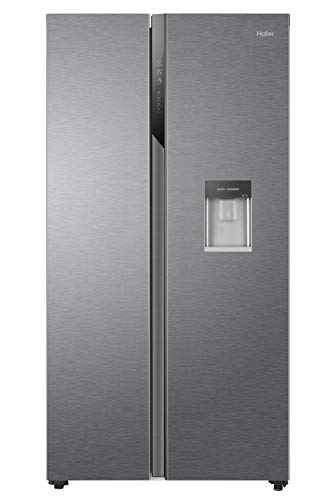20 Trailblazers Setting The Standard In Buy Fridge
A Comprehensive Guide to Buying a Fridge: Tips and Considerations
Acquiring a refrigerator is a significant decision for any household. The right fridge not only keeps your food fresh however likewise improves the visual appeal of your kitchen area. With a plethora of alternatives readily available in the market, possible purchasers face the difficulty of finding a refrigerator that matches their needs and fits their spending plan. This short article provides valuable insights into the essential aspects to think about when purchasing a fridge, classifies the various types readily available, and answers some often asked questions.
Kinds of Refrigerators
Before diving into the buying process, it's important to understand the numerous types of refrigerators available. Each type serves an unique purpose and features its own set of functions. Here's a fast introduction:
Type
Description
Perfect For
Leading Freezer
A conventional design with the freezer compartment on top.
Budget-conscious customers.
Bottom Freezer
Refrigerator above, freezer at the bottom.
Those who regularly access fresh food.
Side-by-Side
2 vertical sections, one for the fridge, one for the freezer.
Large families with diverse storage needs.
French Door
Different compartments for fridge and freezer with broad doors.
Elegant kitchen areas and passionate cooks.
Compact
Smaller and portable, ideal for limited spaces.
Dorms or small apartments.
Smart Fridges
Geared up with Wi-Fi and touch screens for sophisticated functions.
Tech-savvy users looking for benefit.
Understanding these different types can help purchasers identify what fits their way of life and kitchen layout best.
Key Considerations When Buying a Fridge
1. Size and Space
The size of the refrigerator is one of the vital factors to consider. Measure the offered area in your cooking area where the fridge will live. Keep in mind:
- Depth, Width, and Height: Ensure that the fridge matches your cooking area's general design.
- Door Swing: Check that the door can open freely without obstruction.
- Capacity Needs: Consider how much food you generally store and choose a fridge with a proper cubic foot capacity.
2. Energy Efficiency
When purchasing a new fridge, search for energy-efficient models. wardbennage.top -rated fridges take in less electricity, which can substantially lower utility costs. Factors to assess consist of:
- Energy Guide Label: This supplies a quote of the annual energy consumption.
- Inverter Technology: Helps keep temperature level while consuming less power.
3. Functions and Technology
Fridges feature a myriad of functions and technological improvements. Picking the ideal combination can significantly enhance benefit:
- Temperature Control: Look for designs that use accurate temperature settings for different compartments.
- Smart Technology: Wi-Fi connection can use informs, dish suggestions, and stock checks.
- Ice and Water Dispenser: Consider whether you desire an in-door water and ice dispenser to conserve space and enhance accessibility.
4. Style and Design
The visual appeal of your refrigerator can complement the total kitchen area style. Consider the following styles:
- Finish Choices: Stainless steel, matte black, and traditional white are popular surfaces.
- Deal with Design: Choose a handle design that matches your cooking area's design and is easy to open.
5. Price and Brand Reliability
While there are many spending plan options readily available, investing in a trusted brand often equates to reliability and durability. Consider the following:
- Warranty: A solid service warranty can secure against problems and failures.
- Consumer Reviews: Research user feedback to evaluate performance and service quality.
Purchasing Tips
- Research: Spend time reading evaluations and contrasts before deciding.
- Sales and Promotions: Look out for sales during vacations or unique events to get better deals.
- In-store Experience: Visit regional home appliance stores to see the models personally and ask concerns to educated staff.
Frequently asked questions about Buying a Fridge
1. How long can I anticipate my refrigerator to last?
Usually, a refrigerator lasts in between 10 to twenty years, depending on the brand name and maintenance. Regular maintenance can extend its lifespan.
2. What should I do if my refrigerator isn't cooling properly?
Start by inspecting the temperature settings, guarantee the door seals are undamaged, and keep the coils clean. If concerns continue, consult an expert service technician.
3. Are clever fridges worth the financial investment?
Smart fridges can be helpful for tech-savvy users and those who value convenience. Features like stock management and remote gain access to can conserve time and lower food waste.
4. How do I appropriately maintain my refrigerator?
- Tidy the interior routinely to eliminate spills and smells.
- Thaw if you experience frost buildup.
- Inspect the door seals to ensure they are tidy and practical.
5. What is the best refrigerator brand name?
There is no one-size-fits-all response. Nevertheless, brands like Whirlpool, Samsung, LG, and Frigidaire are frequently appreciated for quality and customer care.
Eventually, purchasing a refrigerator includes a lot more than just selecting a random design off the rack. By making the effort to evaluate your requirements, examining type alternatives, understanding critical features, and thinking about style aesthetics, you can make an informed choice that will serve your household well for years to come. With the right option, your refrigerator will be a reputable buddy in your day-to-day kitchen area operations.
